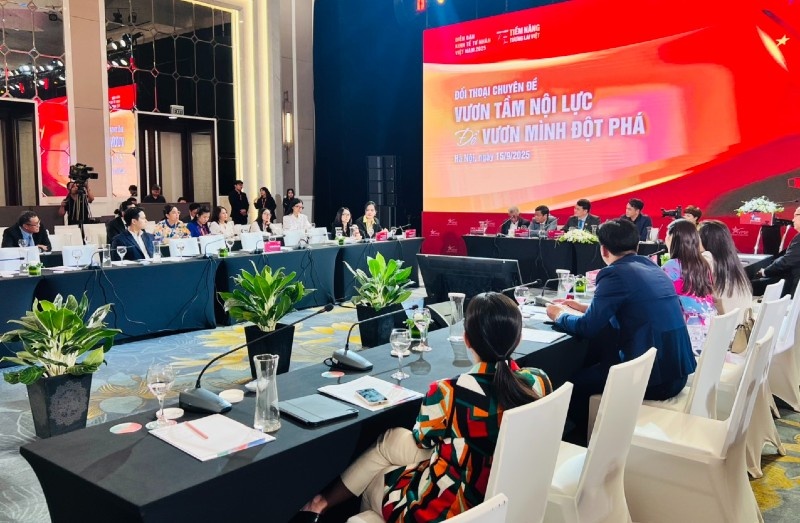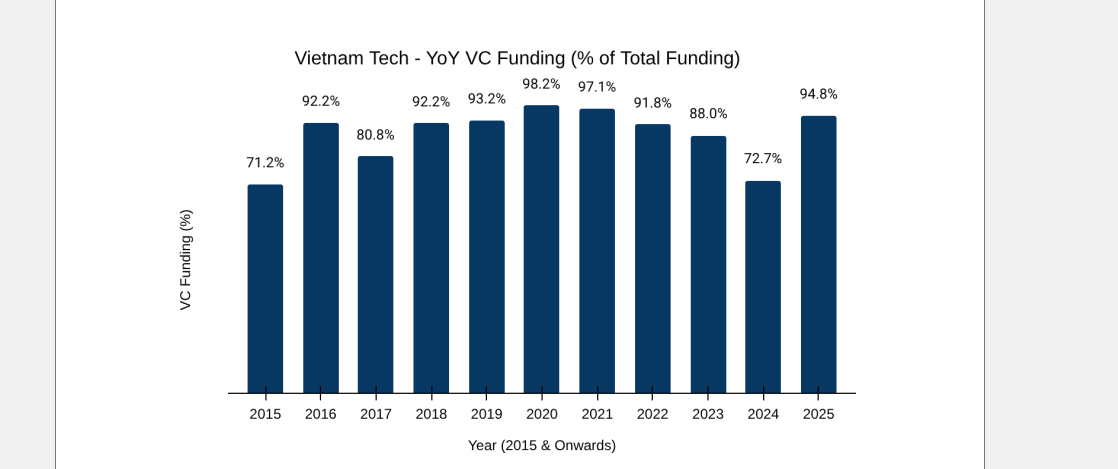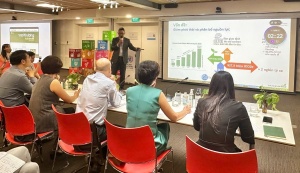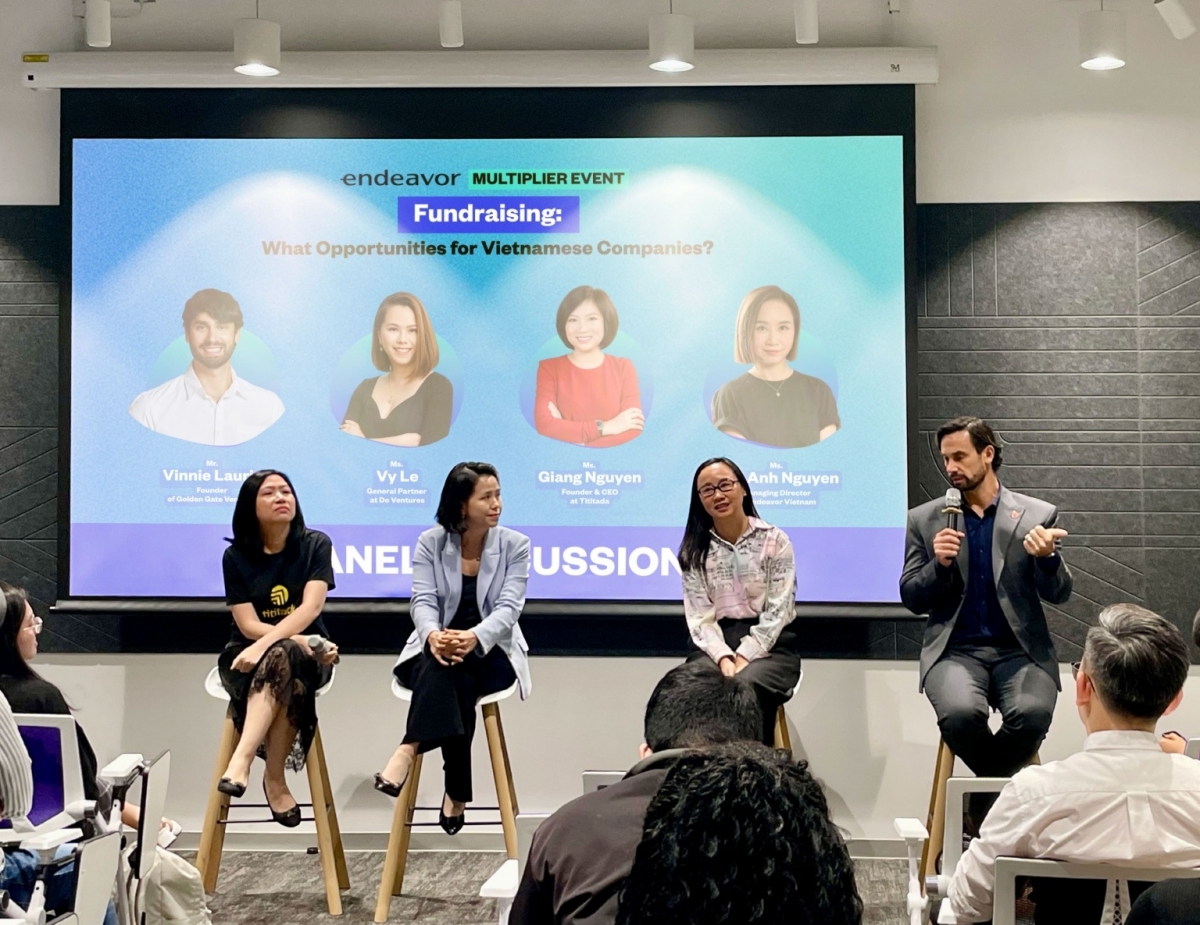INTERNATIONAL INVESTMENT
AND PORTAL
This announcement was made on September 15 in Hanoi as part of the Vietnam Private Sector Economic Forum (VPSF) 2025.

At the session, Ha Phan, founder of HR Companion, a startup in the human resources sector, shared her personal journey and the challenges she has faced after two and a half years of entrepreneurship.
Despite having no difficulty attracting clients thanks to her prior experience, Ha Phan revealed that she struggled with enterprise management issues, particularly those related to corporate income tax and VAT.
“For a founder in the early stages, there are just too many burdens on the person leading the company - from finding ways to sustain the business and retaining talent amid competition from larger corporations, to driving growth,” Ha said. “I simply didn't have time to learn fundamental management skills.”
“I wish that at the very beginning, there was a unit in place to support us with tax, management, and finance-related issues,” she expressed.
Responding to her concern, one shared by thousands of young businesses across Vietnam, Bui Thu Thuy, deputy director general of the Department of Private Enterprise and Collective Economy Development under the Ministry of Finance (MoF), noted that Resolution No. 68-NQ/TW on private sector development clearly stipulates that newly established enterprises will be eligible for free training courses.
Thuy said that the department is working to ensure that every newly registered business receives a free voucher to access essential training on enterprise management.
“The specifics of this initiative will be outlined in Resolution No.138/NQ-CP of 2025, which sets forth the government's action plan to implement Resolution 68,” she said.
According to Thuy, the 10,000 CEO Training Programme is a top priority under direct government instruction. The Department is currently coordinated with both international and domestic universities to be able to realise the goal of providing learning vouchers to selected CEOs.
In her words, the curriculum will comprise of 60 per cent practical content, with theory playing only a foundational role. Courses will be available in both online and offline formats, and each CEO can choose a learning track based on their individual needs. The government is considering partially subsidising overseas study for participants in the programme.
The department's executive representative also called on large and prominent businesses to support the socialisation of the programme and to collaborate with the MoF.
“Our approach is to source from the market, meaning we won't create new courses ourselves, but will instead adopt existing courses from universities,” she explained.
In addition, the MoF is set to work with relevant stakeholders to establish a standardised framework for enterprise management, tailored to Vietnamese businesses. Based on this framework, universities will either develop new courses or enhance existing ones to meet the defined standards.
“The programme is in its final stages of development and is expected to be submitted to the government this year, with full implementation beginning in 2026,” Thuy said.
As a member of the drafting committee for Resolution 68, Thuy also emphasised that the resolution institutionalises many long-standing issues faced by enterprises. Notably, it introduces the principle of 'non-criminalisation of economic relations', a new and progressive concept.
She stressed that Resolution 68 is not merely a policy of the Politburo, but one that has drawn the active participation of various ministries, government agencies, and top-level leaders.
“Following the enforcement of Resolution 138 which guides the implementation of Resolution 68 from May 16, starting next year, several tax incentive policies will come into effect, for instance, newly established enterprises will enjoy a three-year tax exemption,” the MoF representative added.
 FPT University and Dream Lab harness AI to cultivate startups
FPT University and Dream Lab harness AI to cultivate startups
FPT University and Dream Lab on July 31 signed a MoU to launch a groundbreaking initiative aimed at building Vietnam's most dynamic startup and entrepreneurial ecosystem for students.
 Tracxn report highlights Vietnam's fast-rising startup ecosystem
Tracxn report highlights Vietnam's fast-rising startup ecosystem
Vietnam's startup ecosystem is emerging as a regional force, backed by rising capital inflows and a growing number of unicorns.
 Forest Ecopreneur 2025 wraps up with new pathways for green startups
Forest Ecopreneur 2025 wraps up with new pathways for green startups
The Forest Ecopreneur Program has concluded its 2025 cycle, strengthening startups in forest conservation and supporting sustainable livelihoods.



















